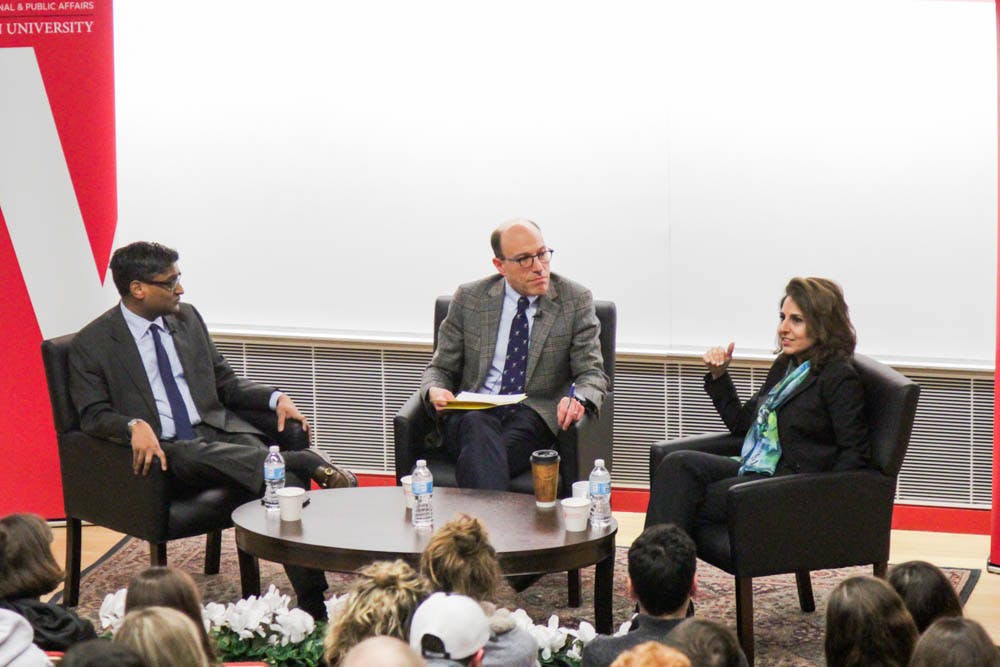A conservative and a liberal came together Tuesday to share their perspectives of President Donald Trump in what interviewed students called a “startlingly civil conversation.”
Hosted by the Watson Institute for International and Public Affairs in a packed Metcalf Auditorium, the discussion between Neera Tanden, president of the Center for American Progress, and Ramesh Ponnuru, senior editor for the National Review, centered on Trump’s policy decisions. The talk was moderated by Director of the Watson Institute Edward Steinfeld.
The conversation began with a discussion of Trump’s immigration ban. Though immigration policy needs to be rethought, Trump’s executive power is too strong, and he has too much “legal latitude,” Ponnuru said. Tanden agreed that Trump’s use of executive power has exceeded its appropriate boundaries.
The talk also addressed health care policy in the Trump era. The Affordable Care Act has reached a 50 percent approval rating, its highest ever, Tanden said. “It’s dramatically more popular than Trump himself.”
Creating a plan to replace the ACA “would require Republicans to actually think about health care,” Ponnuru said, adding that Republicans are willing to do anything to stop the ACA.
Trump promised better and cheaper health care to those who are upset with the ACA, Tanden said, noting his populist angle.
“Trump’s version of populism is to reflect himself as embodying the popular will,” Ponnuru said. “If you think you speak for the people, your opponents are the enemies of the people,” which is a mistake in a pluralistic society, he added.
Isolating the opposition can lead to widespread demonstrations, such as the recent women’s marches, Tanden said. Though some would like to view the women’s marches and increased insurgent protests as a coastal phenomenon, that interpretation is incorrect, she said. In states such as Alaska and Montana, the women’s marches were the largest demonstrations those states’ modern history, she added.
“The (United States) goes mad during elections,” Ponnuru said. But this time, “the fever didn’t break” after the inauguration, he added.
Dave Andrews, a high school social studies teacher from Woonsocket, asked whether the wealth gap would widen under Trump’s presidency. Tanden’s reply was a resounding “yes.”
Students who attended the discussion said they appreciated the bipartisan nature of the conversation. “I was impressed overall,” said Elizabeth Yeh ’19. Steinfeld was “ideologically balanced” and addressed a wide range of topics, she added.
“Not many events at Brown look both left and right,” said Ethan Shire ’19.
It is “a good idea to get a variety of conceptual and intellectual perspectives,” Steinfeld told The Herald. Tanden and Ponnuru “both have records of not just having strong opinions, but (of) being willing to expose those opinions to probing and analysis,” he added. Going forward, Steinfeld hopes to continue to bring a variety of political voices to the University.





